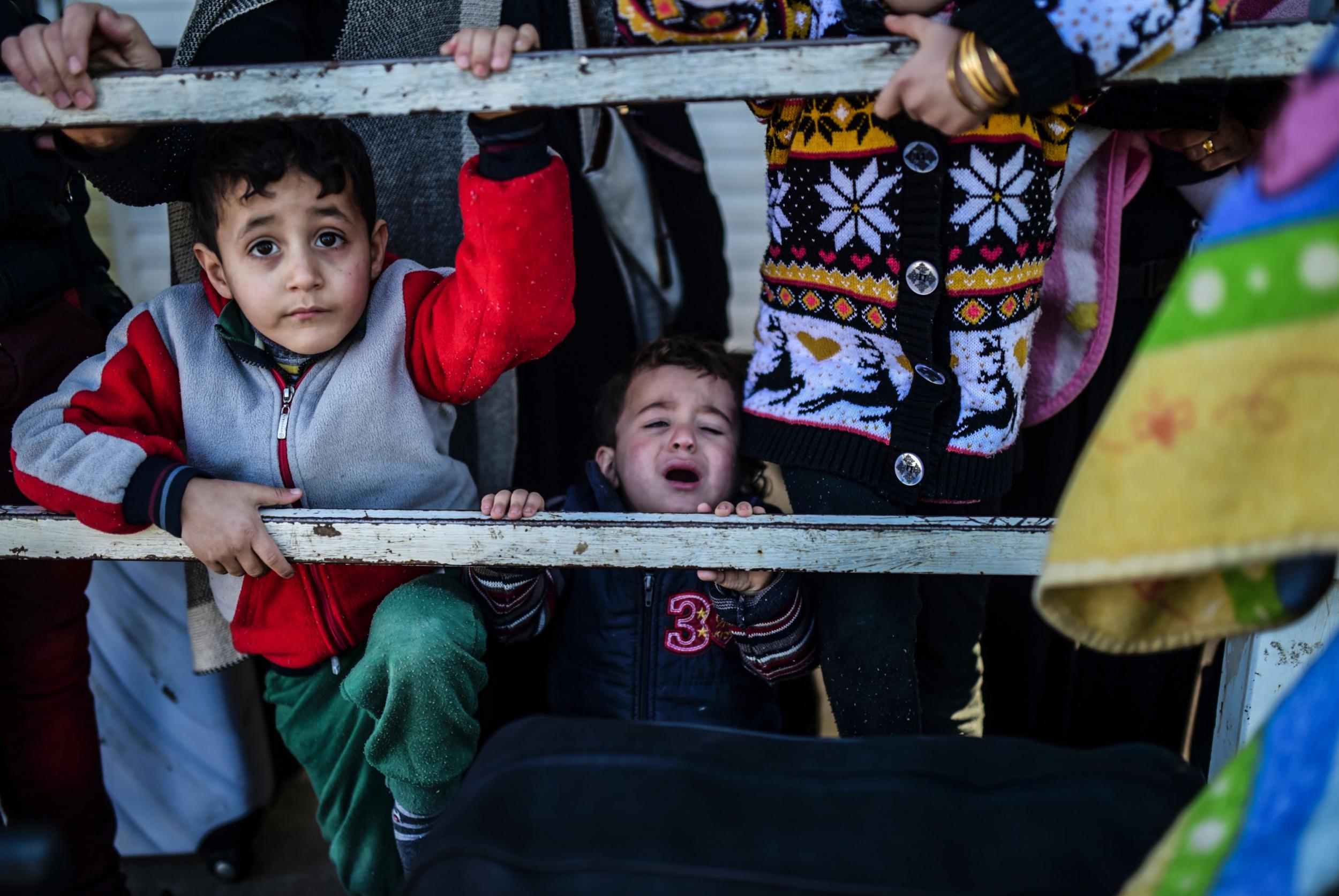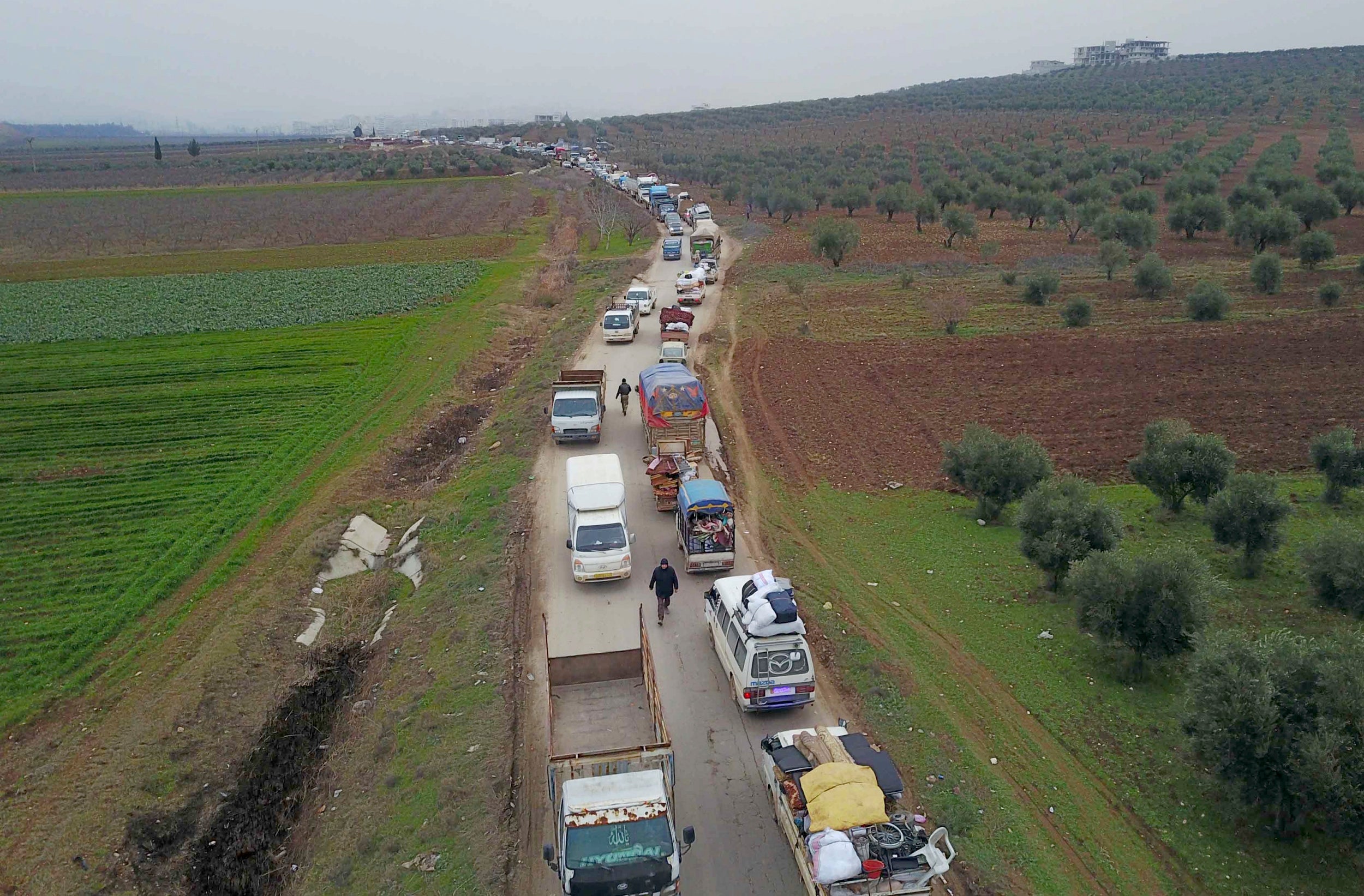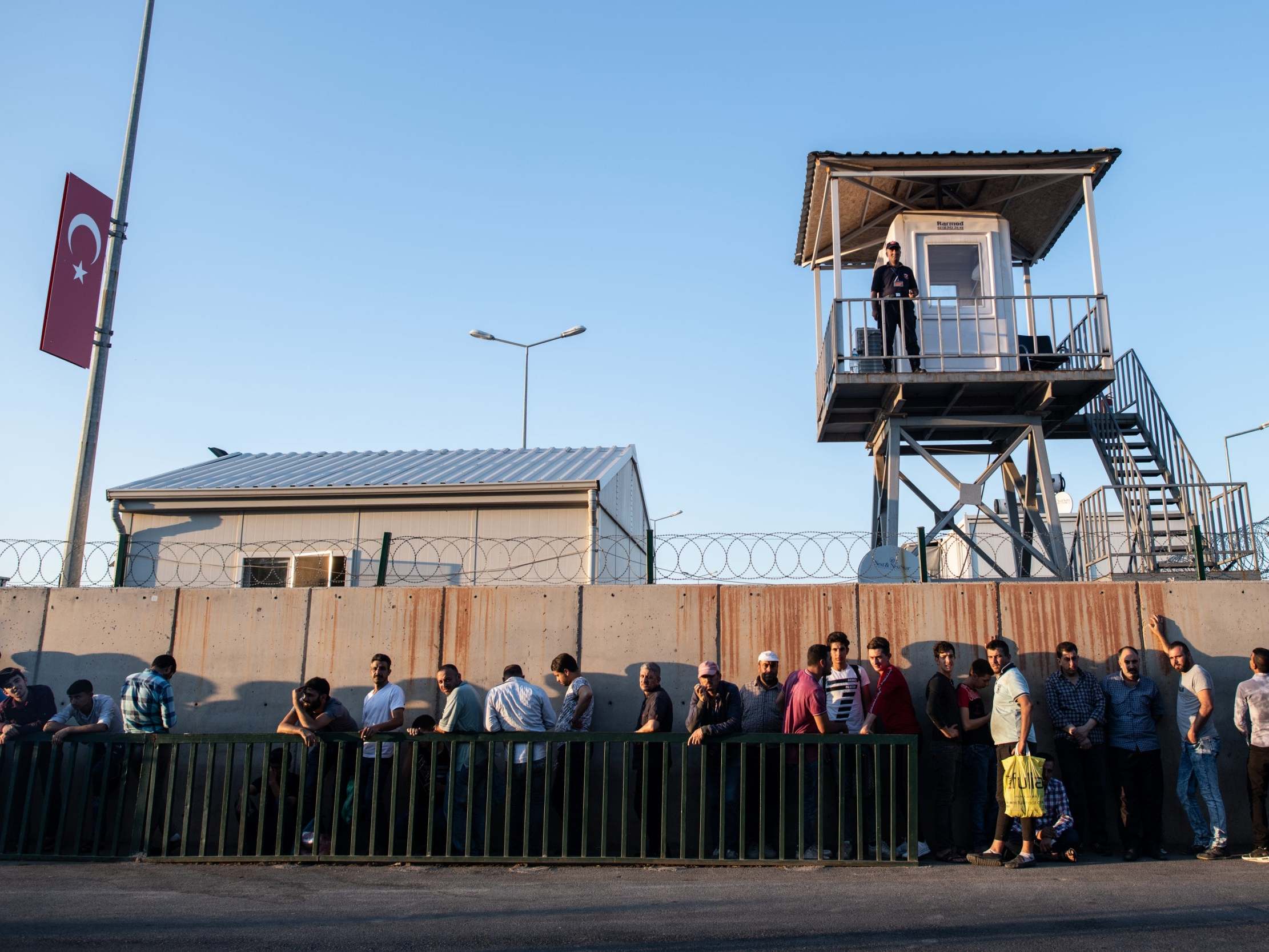Millions of desperate refugees struggling in Turkey still pining to cross to Europe
Networks of smugglers poised to profit from frustrated migrants, finds Borzou Daragahi in Izmir


Ten times the Syrian family of five tried to make it across the border to the west from Turkey. They tried via the land border to traverse the woods and make it into Bulgaria. They tried in flimsy rafts to reach Greece by sea.
Over five years residing in Turkey, they have paid thousands, perhaps tens of thousands of dollars, to smugglers, some of whom swindled them out of their money without helping them cross. Once they almost drowned at sea, another time they were held for days in a primitive holding cell with little food or running water.
Still Youssef, 55, his 43-year-old wife Suhaila, and their three children – Wael, 20, Gardinia, 18, and 14-year-old Clara – are determined to get to the west, whether legally or illegally.
They are not alone. After falling for several years, the number of migrant arrivals in Greece has spiked, with diplomats and aid workers anticipating higher numbers as the upcoming spring brings calmer seas.
“I have one hope,” says Youssef. “I want to find a better life for me and my children. I want them to study and get a better education.”
Meanwhile the network of smugglers bringing Syrians, Afghans, Pakistanis and others through Turkey towards western Europe has grown as robust as ever, with some boldly advertising their services on Instagram.
“There’s no problem; I can bring anyone,” says one smuggler based in Tehran, reached through his social media accounts, citing prices up to $10,000 per head to get people to Greece.
“The border police on both sides are in our hands,” he says in a phone interview. “If [the migrants] are ready, I will bring them today. This is my job since the day I opened my eyes. It has been my job for 14 years, and this is what my father did before me.”
At least 3.7 million Syrians are sheltering in Turkey, with as many as a million more poised to enter the country as Russia and the regime of Bashar al-Assad hammer away at Idlib province, where hundreds of thousands of civilians have amassed at the Turkish frontier.
At least another 400,000 or so refugees from Afghanistan, Iran and elsewhere have also settled here, almost all longing to eventually head towards western Europe.
Turkey has been commended by international aid groups and diplomats for absorbing the bulk of those escaping the conflict in Syria. Some 50,000 have been granted Turkish citizenship, often those with elite educational backgrounds or considerable commercial or professional achievements.
In cities like Kilis or Reyhanli, border towns where the numbers of Syrians match or even exceed the population of Turks, innovative integration and reconciliation programmes have been undertaken to bolster harmony.
But to many Turks, the Syrians have long overstayed their welcome. The refugees have become a political liability for the dominant Justice and Development Party (AKP). Both Turkish president Recep Tayyip Erodgan and his secular, liberal and nationalist opponents, likely listening to voices in their political bases, have begun urging the Syrians to go back home.

“What has changed in Turkey is the attitude towards the refugees,” says a western diplomat. “What was originally supposed to be a temporary situation has now turned permanent.”
Syrians say the hostility runs deep. Though grateful to Turkey for letting them escape from the war, they say that Turks rarely embrace foreigners. One young Syrian woman, a university student in Izmir, says passengers on the metro turn and glare at her when her cell phone rings and she picks up and answers in Arabic. “All of them look at me with suspicion,” she says.
Syrians complain of a lack of compassion and understanding for what they have experienced.
“What are you doing here in Turkey?” a Turkish classmate once asked the 20-year-old.
She described the killings of relatives, the murder of a beloved uncle at the hands of the Assad regime, the bombings of neighbourhoods.
He was unmoved. “If there was a war in my country I would stay and fight,” she recalled him saying. “You are stealing our jobs. You are taking the place of a Turkish student.”
Though the Syrians have lived in Turkey as long as nearly nine years, they live precarious existences. Youssef and his family fled Syria’s Aleppo province as war engulfed the city and the surrounding countryside. For months, the youngest, Clara, was so traumatised by the conflict she would not speak, until therapists coaxed her back to some semblance of normalcy.
“She was hospitalised for two months,” says Suhaila. “She refused to go outside without someone holding her.”
They wound up first in Lebanon, where life was exorbitantly expensive, before moving to Turkey.
For now they live in a rented flat within the narrow alleyways of Izmir’s ageing hillside slum of Basmane, on the slope leading up to the ancient Kadife castle.
Despite a debilitating car accident that left Youssef often unable to walk, he scurries together a few hundred dollars each month working at a local restaurant. Both his grown children work, earning about $100 per week working at textile factories.
Like most of the Syrians who wind up in the country, they had hoped to use it to as a launchpad to western Europe. They have applied to the United Nations for resettlement. But they have also tried to sneak across Turkey’s porous frontiers.
Once they were caught at sea by Turkish authorities and dragged back to shore to a holding facility in Dikili without toilets or much to eat. “We were begging for a change of clothes,” recalls Youssef. “If you wanted to wash your hands or face, there was nothing.”
And once he, his wife and three children nearly drowned, an experience which was so traumatising that the youngest, Clara, remains terrified of the sea which graces the coastal city where they live.
They continue to explore the robust networks of smugglers and forgers who, for an exorbitant fee, claim they can help people get to the west.

One smuggler cites a price of about $4,000 per head to get people to Greece. “I give them a passport that they can travel with through Turkey,” he says, another of the various smugglers advertising on social media. “The police won’t give them any problems.”
Another says he smuggles people across the Bulgarian border by motor vehicle for €8,000, or €2,500 by boat, a mode of transport he strongly advises against.
“We know Bulgarian officials who work with us; we coordinate with them,” he claims, adding that he sends about a dozen people a month across. The 24-year-old Kabul native has been a smuggler for two years.
“But the boats are dangerous,” he says. “We have boats. But it’s too cold and risky now.”
Migrants rights advocates cite deteriorating conditions for refugees in Turkey, prompting families and individuals to take the risky gamble to get to Europe.
I want to find a better life for me and my children. I want them to study and get a better education
“I have tried to cross many, many times,” says 30-year-old Khalid, a Syrian of Palestinian descent who arrived in Turkey some four years ago, and is scraping up money for the next crossing.
“There’s just nothing here for me,” he says, noting that his wife and child have already reached Germany but can’t come here because Turkey doesn’t allow for family reunification.
When caught, migrants and refugees are taken to detention centres that are becoming increasingly squalid, sometimes allowed outside for only 90 minutes a day, according to activists.
“They’re like prisons,” says Deman Guler, a lawyer and migrant rights activist in Izmir. “We don’t even know how many people are inside.”
Even those who obtain refugee status in Turkey are often discouraged from staying, knowing they’ll be unable to obtain a proper job, or ever fully integrate into Turkish society.
“If you give people refugee status, you have to give them an opportunity to get citizenship,” he says, during a meeting in the offices of Izmir’s bar association. “You have to give them a future. In Turkey all the problems come down to that. They see no future here.”
Join our commenting forum
Join thought-provoking conversations, follow other Independent readers and see their replies
Comments